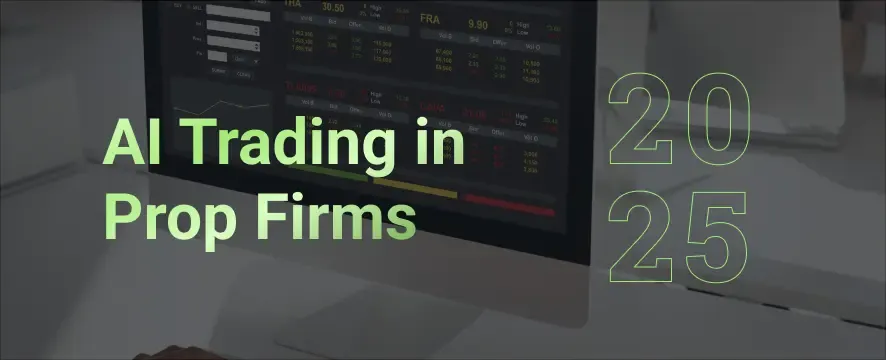
18 min read
Funded Trading Accounts Explained: Types, Benefits & How to Get One
A funded trading account gives you access to a firm’s capital to trade, share profits, and reduce personal risk.
7 min read
Share
How should you trade the Forex Market during an economic downturn?

If you own stocks in the stock market or real estate in the property market, you could potentially see a large portion of your wealth wiped out during an economic downturn.
Although there are ways to mitigate risk in the financial markets, the risk of an economic downturn is real. But how does an economic downturn impact the Forex Market, and are there ways to limit your exposure during volatile times – or even profit from them?
In this article, we’ll endeavor to answer these questions and present some strategies to not only safeguard yourself during an economic downturn but even thrive in it.
So, what exactly is an economic downturn?
It is a period when a country’s economic performance is poor, according to key metrics such as rising unemployment rates, decreased consumer spending, or reduced GDP growth.
The most common economic downturn is a recession, characterized by two consecutive quarters of negative GDP growth.
Economic downturns can be caused by several different things – some of them more avoidable than others. Here are some common causes:
However, the question is: How exactly do economic downturns affect the Forex Market?
The Forex Market is hugely impacted by economic downturns. The three scenarios below are the most notable impact on the Forex Market:
Economies that are struggling tend to see their currencies depreciate as investors lose confidence in the country. Moreover, the central bank may lower interest rates to stimulate economic growth, but this can negatively affect investor interest.
Periods of economic downturn cause a spike in volatility as market participants react to the sudden (and sometimes) unexpected changes in market conditions. Although this increase in volatility is not necessarily bad, it’s something traders need to be aware of.
When there is economic uncertainty (particularly on a global scale), investors and traders flock to ‘safe-haven’ currencies, which tend to be more stable than others. These include the Swiss Franc (CHF), the US Dollar (USD), and The Japanese Yen (JPY).
During periods of economic downturns, the Forex Market can see substantial and violent price swings as market participants adjust to the news of an economic downturn.
This poses a unique set of challenges for Forex traders. We’ll discuss four of the most common below:
A market gap can occur during times of quick and sudden price action. As the Forex Market reacts to new information, the price can jump suddenly from one price to another.
Market gaps can have a particularly notable impact on stop-loss orders, as positions may not be able to be closed at the pre-determined price level, and positions are often sold at much lower prices, resulting in larger-than-expected trading losses.
During an economic downturn, prices can move rapidly, resulting in large trading losses – particularly if risk management is poor or non-existent.
As mentioned, even if a stop-loss is in place, the losses can be larger than anticipated due to the violent price swings.
The most common trading indicators used when the market is in a ‘normal’ state may present false signals during periods of heightened uncertainty, such as an economic downturn.
For example, a trader who typically enters a trade around a support level can be caught off guard if the price keeps plummeting and breaks the support level.
During an economic downturn, liquidity in the Forex Market can dry up.
This happens for several reasons:
During an economic downturn, traders and investors prefer to take the ‘safer approach.’
This typically results in traders flocking to safe assets such as gold or government bonds or refusing to trade altogether.
During periods of economic downturn, traders tend to rush into safer currencies such as the US Dollar, Swiss Franc, or Japanese Yen. This can cause an ‘imbalance’ in the market and the liquidity in more risky currencies to dry up.
During an economic downturn, traders usually look for ways to reduce risk, and one of the easiest ways to do this is to use less (or no) leverage.
This has a ripple effect on liquidity in the market as leverage increases trading volume, and therefore, a ‘deleveraged’ market results in an overall decreased trading volume and reduced liquidity.
If you are trading the Forex Market during an economic downturn when the market is very volatile, there are certain shifts you might need to make in your trading strategies to navigate the heightened volatility.
We will discuss three of these below:
During periods of high volatility, risk management becomes more critical than ever, as the unpredictability of the market can cause sudden and sharp price swings.
Therefore, it’s vital to trade with a stop-loss in place and consider using less leverage. Also, consider trading with slightly smaller position sizes to limit your exposure to the market during an economic downturn.
During an economic downturn, it’s advisable to stick to major currency pairs such as EUR/USD, GBP/USD, and USD/JPY. Exotic currency pairs such as USD/ZAR and USD/TRY tend to have far less liquidity and are much more susceptible to erratic price swings.
Hedging is a way to add another layer of protection to your risk management strategy. When you hedge, you take a position that should perform opposite to your current, open position.
There are several ways to do this, such as trading another currency pair with a strong correlation or using a financial instrument such as options or futures.
During an economic downturn, market sentiment shifts the market more than anything else. Market sentiment is essentially traders' and investors' overall attitude and sentiment towards the market or specific currencies.
As more economic data and news are released, market sentiment can quickly shift. Sentiment analysis is a valuable tool to gauge overall market sentiment.
When an economic downturn comes and volatility spikes, traders and investors often wrestle with negative emotions such as fear and uncertainty. This can cause poor decision-making and tempt you to deviate from your trading plan.
During these times, it’s more important than ever to have a clear trading plan – and stick to it.
Also, pay attention to the news to gauge market sentiment, but don’t let it influence your trading strategy and plan.
So, in summary, trading during an economic downturn when the market is more volatile is not too different from trading at other times. However, risk management becomes more important than ever.
Moreover, it’s highly advisable to stick with major currency pairs during these times. Perhaps most importantly, stick to your trading plan and don’t let fear and uncertainty swap you off course.
But, it is important to keep a close eye on the news, as central bank intervention or a shift in economic data can quickly shift the Forex Market once again.

18 min read
A funded trading account gives you access to a firm’s capital to trade, share profits, and reduce personal risk.

12 min read
Yes, some prop firms allow news trading. This 2025 guide shows which firms permit it, their rules, and how traders can benefit.

10 min read
A funded trader uses a prop firm’s capital instead of their own. Learn how funded accounts work, profit splits, and how to qualify.

13 min read
To become a funded trader in 2025, you must pass prop firm challenges by mastering strategy, risk control, and trading rules.

9 min read
Discover effective AI trading strategies for prop firms to enhance your profits. Learn practical tips to navigate the market successfully. Read more!
Get an insight from other users about SeacrestFunded and their experiences. 131K+ members and counting

Get instant access to weekly newsletter.